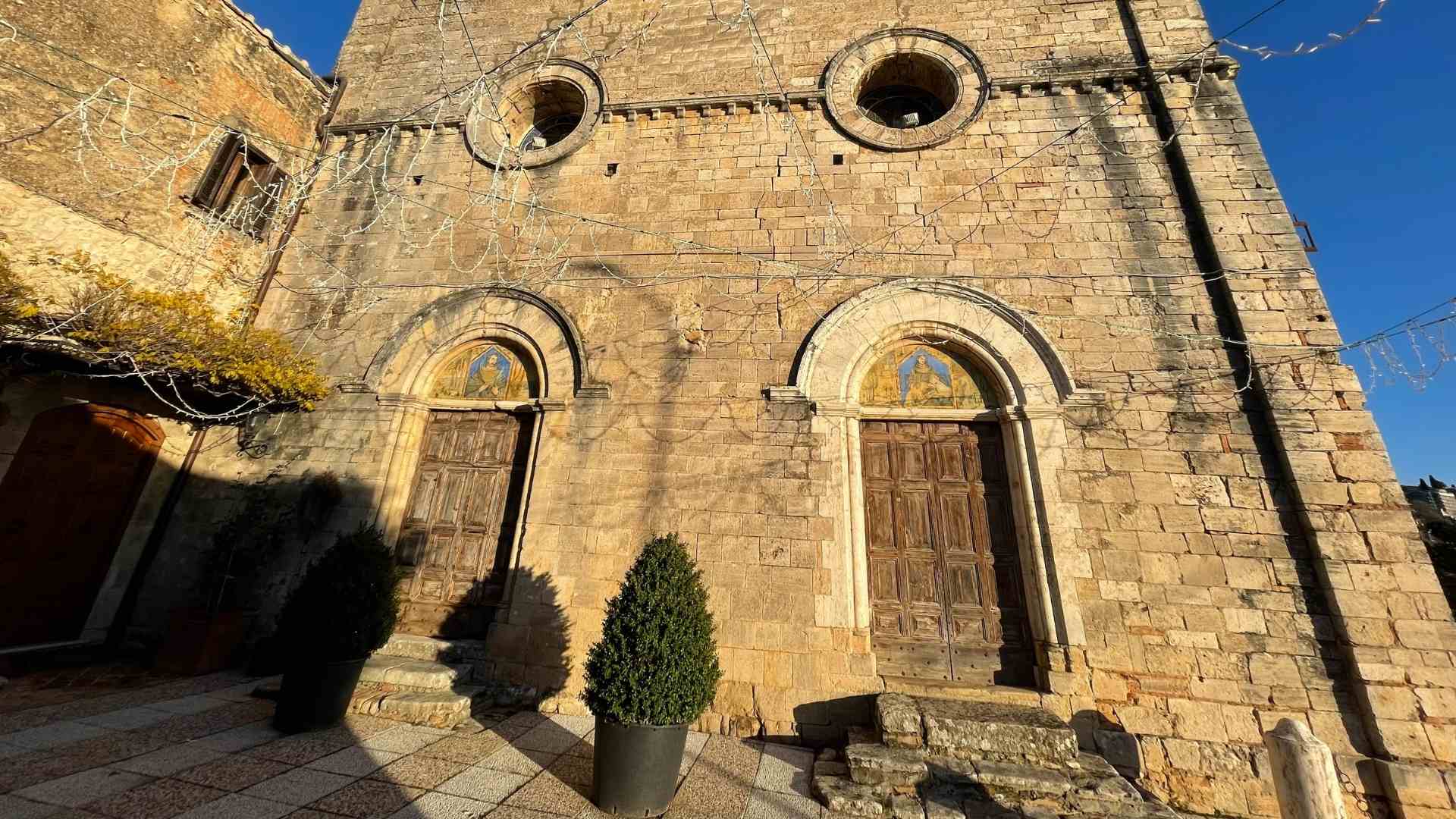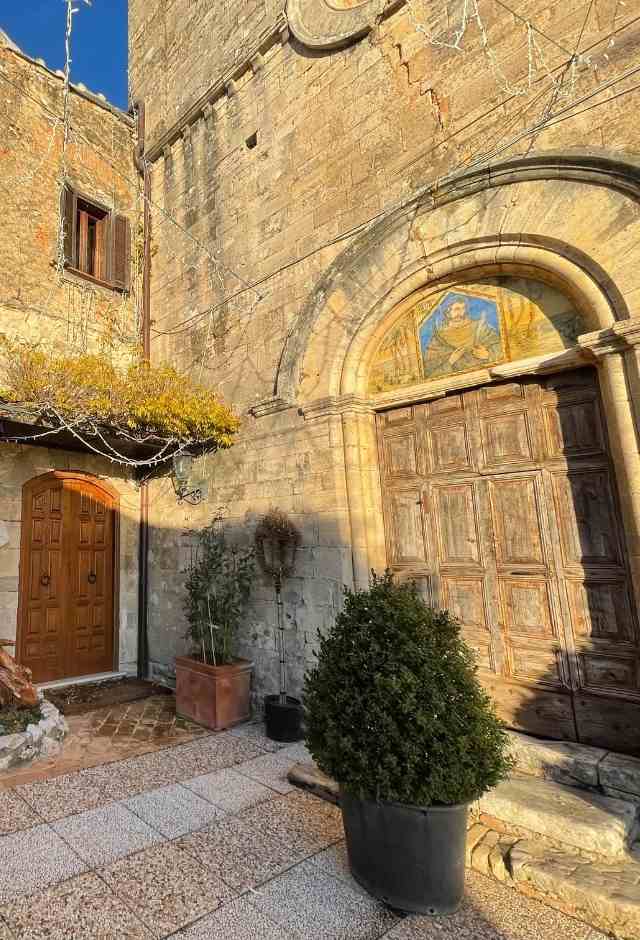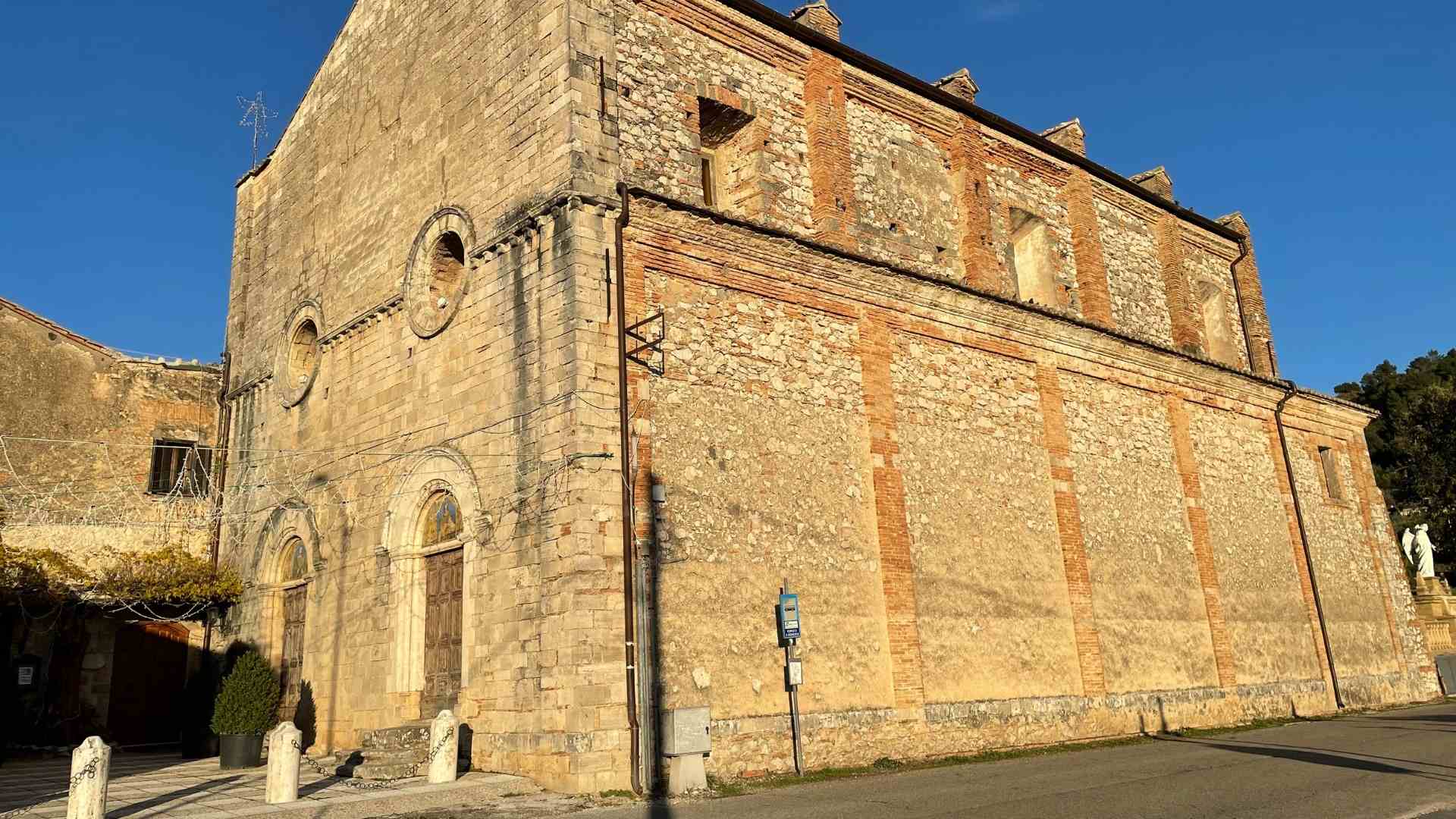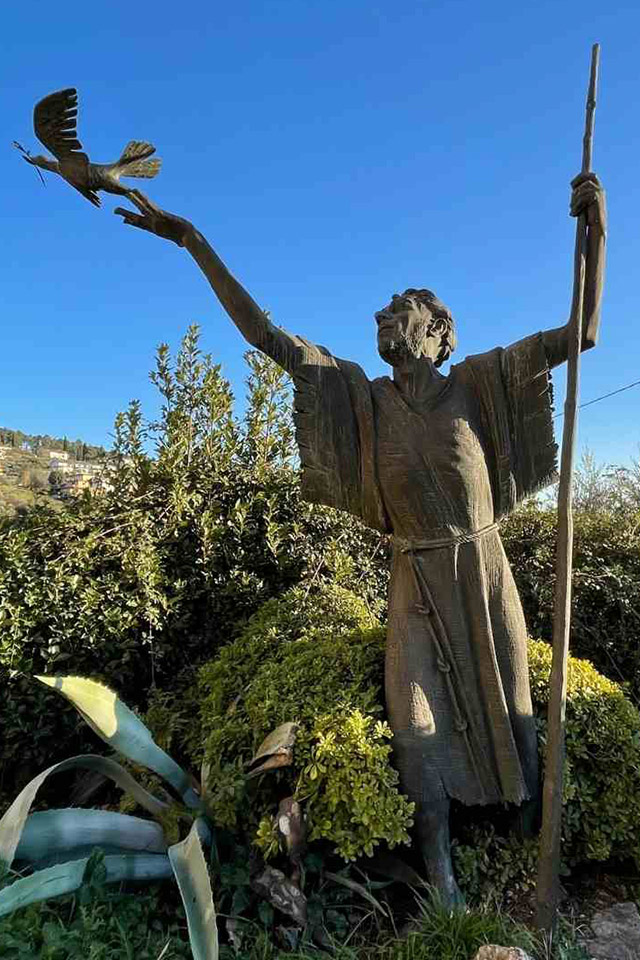
punto di interesse
point of interest


The ancient Church of San Francesco , now in restoration, arises just outside the old town of Calvi dell’Umbria along the provincial street which takes to the narby Otricoli, built in 1213 in occasion of one of the visit of the Saint from Assisi.
Tradition wanted that was the noble Berardo de’ Leopardi , then Franciscan protomartyr, to realize in one of his lands the primitive church and the oratory of San Vittorina of which we have documentary notices from 1291.
From the original complex are preserved some tracts of the northest wall , the facade of the church and of the same oratory.
The church suffered fires and, above all, the looting of the Lanzichenecchi in 1527 after which the structure was rebuilt in the features that can be admired today.

The ancient Church of San Francesco , now in restoration, arises just outside the old town of Calvi dell’Umbria along the provincial street which takes to the narby Otricoli, built in 1213 in occasion of one of the visit of the Saint from Assisi.
Tradition wanted that was the noble Berardo de’ Leopardi , then Franciscan protomartyr, to realize in one of his lands the primitive church and the oratory of San Vittorina of which we have documentary notices from 1291.
From the original complex are preserved some tracts of the northest wall , the facade of the church and of the same oratory.
The church suffered fires and, above all, the looting of the Lanzichenecchi in 1527 after which the structure was rebuilt in the features that can be admired today.

The church of San Francesco , built in local limestone, has a facade of square shape with two twin doors overlooked by rose windows and a tympan .
The inside has a unique aisle with a barrel vault and ten lateral chapels , two of which flank the presbytery which is opened inside a deep niche.
Some of the preserved works from the church are now transferred in the Church of Santa Maria Assunta or in the Museum of the Monastery of the Ursuline, as the prestigious wood crucifix from the XV century.
From the little square in front of the church you enter in the square cloister with, in the center, a well of the XIII century, at the walls of the remains of frescoes of the second half of the XVII century represented scenes of the life of San Francesco.
The third stage of Cammino dei Protomartiri francescani (The Way of the Franciscan Protomartyrs) – from Calvi dell’Umbria to Narni passed through the Church of San Francesco, in honor to San Bernardo.

The church of San Francesco , built in local limestone, has a facade of square shape with two twin doors overlooked by rose windows and a tympan .
The inside has a unique aisle with a barrel vault and ten lateral chapels , two of which flank the presbytery which is opened inside a deep niche.
Some of the preserved works from the church are now transferred in the Church of Santa Maria Assunta or in the Museum of the Monastery of the Ursuline, as the prestigious wood crucifix from the XV century.
From the little square in front of the church you enter in the square cloister with, in the center, a well of the XIII century, at the walls of the remains of frescoes of the second half of the XVII century represented scenes of the life of San Francesco.
The third stage of Cammino dei Protomartiri francescani (The Way of the Franciscan Protomartyrs) – from Calvi dell’Umbria to Narni passed through the Church of San Francesco, in honor to San Bernardo.

Continue the tour to the territory of Calvi:
Around the lands of Calvi dell’Umbria
Or discover the points of interest of Calvi and of its territory :
discover all the points of interest of the village
Information, appointments and travel proposals on:
The Progressive Web App is part of the project “Le Terre dei Borghi Verdi”, realized in collaboration and with the contribution of Regione Umbria – Assessorato al Turismo
©2021 Le Terre dei Borghi Verdi
Le Terre dei Borghi Verdi
Welcome in Southern Umbria,
where the slowness becomes value
Information, appointments and travel proposals on:
The Progressive Web App is part of the project “Le Terre dei Borghi Verdi”, realized in collaboration and with the contribution of Regione Umbria – Assessorato al Turismo
©2021 Le Terre dei Borghi Verdi